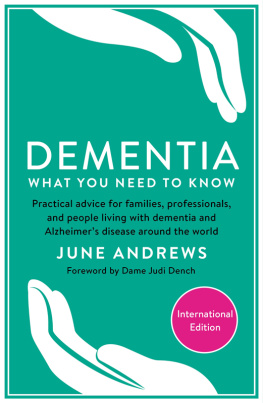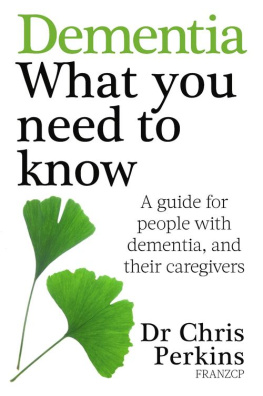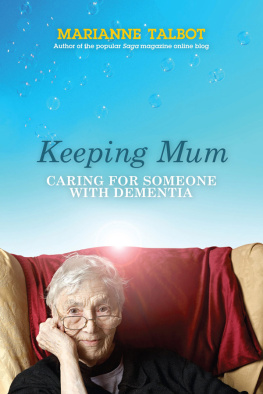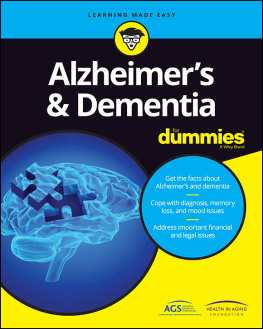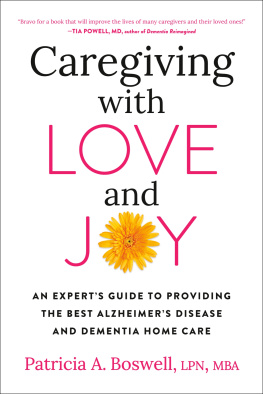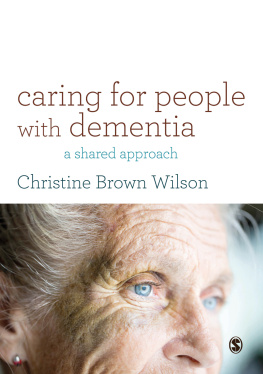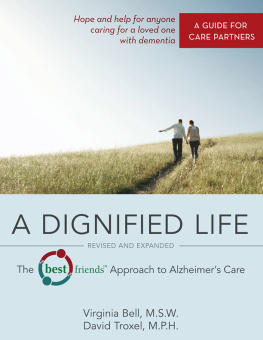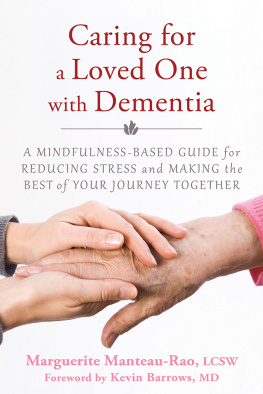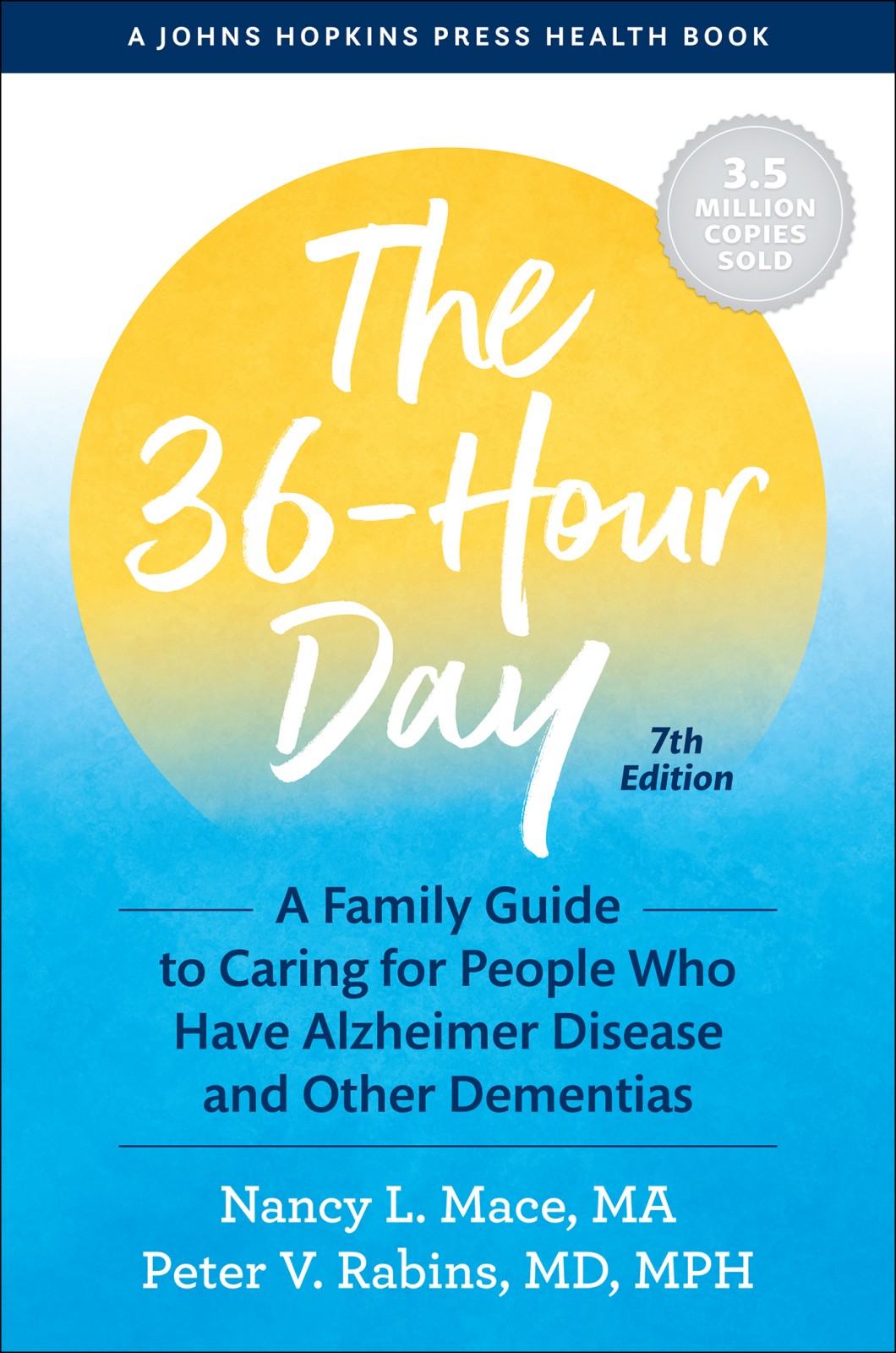The 36-Hour Day
A Johns Hopkins Press Health Book
Nancy L. Mace, MA, is retired. She was a consultant to and member of the board of directors of the Alzheimers Association and an assistant in psychiatry and coordinator of the T. Rowe and Eleanor Price Teaching Service of the Department of Psychiatry and Behavioral Sciences at the Johns Hopkins University School of Medicine.
Peter V. Rabins, MD, MPH, is professor emeritus in the Departments of Psychiatry and Medicine at the Johns Hopkins University School of Medicine. He was the founding director of the Division of Geriatric Psychiatry and Neuropsychiatry and the first holder of the Richman Family Professorship in Alzheimer Disease and Related Dementias.
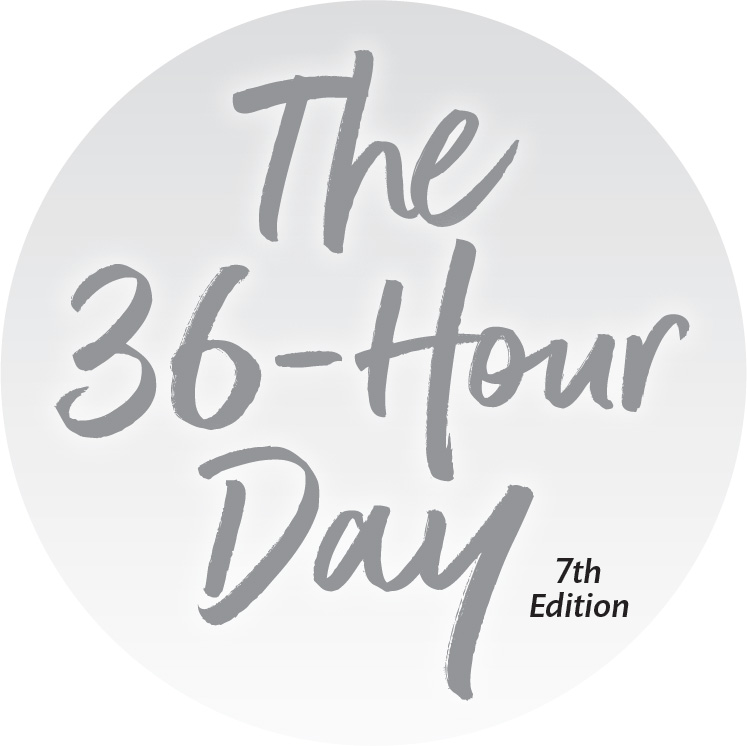
A Family Guide to Caring for People Who Have Alzheimer Disease and Other Dementias
Nancy L. Mace, MA
Peter V. Rabins, MD, MPH

JOHNS HOPKINS UNIVERSITY PRESS
Baltimore
Note to the Reader: This book is not meant to substitute for medical care of people who have Alzheimer disease, other dementias, or memory loss, and treatment should not be based solely on its contents. Instead, treatment must be developed in a dialogue between the individual and their physician. Our book has been written to help with that dialogue.
1981, 1991, 1999, 2006, 2011, 2017, 2021 Johns Hopkins University Press
All rights reserved. Published 2021
Printed in the United States of America on acid-free paper
9 8 7 6 5 4 3 2 1
Johns Hopkins University Press
2715 North Charles Street
Baltimore, Maryland 21218-4363
www.press.jhu.edu
Library of Congress Cataloging-in-Publication Data
Names: Mace, Nancy L., author. | Rabins, Peter V., author.
Title: The 36-hour day : a family guide to caring for people who have Alzheimer disease and other dementias / Nancy L. Mace, MA, Peter V. Rabins, MD, MPH.
Other titles: Thirty-six hour day
Description: Seventh edition. | Baltimore : Johns Hopkins University Press, 2021. | Series: A Johns Hopkins Press health book | Includes index.
Identifiers: LCCN 2020045438 | ISBN 9781421441702 (hardcover) | ISBN 9781421441719 (paperback) | ISBN 9781421441726 (ebook) | ISBN 9781421441733 (paperback, large print)
Subjects: LCSH: Alzheimers diseasePatientsHome carePopular works. | Senile dementiaPatientsHome carePopular works. | Large type books.
Classification: LCC RC523 .M33 2021 | DDC 616.8/31dc23
A catalog record for this book is available from the British Library.
Special discounts are available for bulk purchases of this book. For more information, please contact Special Sales at specialsales@jh.edu.
Johns Hopkins University Press uses environmentally friendly book materials, including recycled text paper that is composed of at least 30 percent post-consumer waste, whenever possible.
To everyone who gives a 36-hour day
to the care of a person with a dementing illness
Foreword
For two generations this book has provided coherent support, helpful direction, and much comfort to families and friends of people afflicted with Alzheimer dementia. Acclaimed by many as the most accessible and comprehensible guide for home care of people with this progressive illness, it now, with this seventh edition, passes another milestone in an illustrious publication record. Im proud to remember how I played a small role in launching this book back in 1981, and I have witnessed, with pleasure, what it has done for its readers in earlier editions over all these years.
We all can acknowledge that the central problem today remains much as it did when the first edition of this book appeared. We still do not know how to prevent or cure this distressful disorder, even though perhaps we can recognize it more certainly and can slow its progress significantly. But we have learned much together about helping people to care for and protect their afflicted kith and kin.
As before (and now with information about the latest advances in research), this edition describes the place and utility of medications that slow the progression of the disorder and medications that relieve some of its more distressful symptoms. But the book still places these medicinal matters into a context of care that is comprehensive and reflective of more everyday concerns. In this sense, its frame of reference remains the same: how to see the person within the disorder and how to sustain that person in harmony with life despite the progress of the affliction.
I believe we can identify something even more significant in the history of this little book and the help it has provided. The illness represents a personal problem that, like many other aspects of life, may follow a better or worse path depending on contexts and circumstances forged by the mediations of family and friends. This book has successfully enhanced the mediating powers of these interested parties by identifying and resolving problems that emerge at various points of transition in the course of this illness. In the process of working effectively in this way, the authors and readers have demonstrated just how much more of lifeabiding friendships, shared experiences, daily encounters, trusting relationsremains to be enjoyed by people who have dementia and by their family members despite this illness and its tribulations.
With that spirit, authors and readers have contributed thoughts and experiences to this latest edition, and I salute its appearance both for what it represents as a product of past collaborations and for what it, as an invigorated new version, will bring to render effective the 36-hour-day labors of new readers.
We can now see with even more confidence that present-day contributions to loved ones in the form of effective and suitable care lead ultimately to a future where cure and prevention will emerge. Because these patients have committed champions, Alzheimer dementia is not a neglected field of study but rather one in which scientific investigation is moving rapidly ahead. As we can foresee the likelihood of a major advance in our powers of treatment and prevention before the next edition will be conceived, we can also recognize how much of the energy spurring such progress should be attributed to the readers of this book and their caregiving commitments to patients as valued people.
Paul R. McHugh, MD
Director, Department of Psychiatry and Behavioral Sciences, 19752001
Johns Hopkins University School of Medicine
Preface
The publication of this seventh edition of The 36-Hour Day provides an opportunity for us to thank the many people and organizations that have contributed to the book since its first publication in 1981 and to its predecessor, The Family Handbook. In 1979, The Family Handbook was written, with the help of Jane Lucas Blaustein, at the behest of the family members who founded the Maryland Chapter of the Alzheimers Association.
Many of the caregiving suggestions in The 36-Hour Day have come from people who were experiencing the symptoms of dementia, from the caregivers of people with dementia, from health care professionals across the country, and from advocates such as the staff of the Alzheimers Association. We thank them and continue to admire both their perseverance and their willingness to share their experiences and thoughts.


